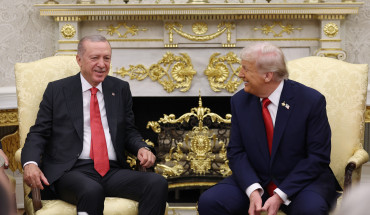One of the Trump administration’s final acts in foreign affairs was to include Israel in the area covered by US Central Command (Centcom), the geographic combatant command responsible for the broader Middle East.
The move will make it easier for these forces, which collaborate frequently with Arab states, to extend that collaboration to Israel. From the US perspective, it is a sensible decision, given that Israel is part of the region and shares many of the security concerns of Centcom. But it presents potential challenges to America’s top foreign policy priority, which is staying ahead in great power competition.
For decades, Israel was under the area of responsibility of European Command (EUCom) and not that of Centcom, mainly because of the complicated politics of the Arab-Israeli conflict. After Egypt and Jordan signed peace deals with Israel in 1979 and 1994, respectively, the idea of forging closer Israel-Centcom relations was broached several times, only to hit a brick wall at every juncture because of the concerns of the other Arab countries.
Today, those concerns have largely subsided.
With the UAE, Bahrain, Sudan and Morocco signing normalisation agreements with Israel last year, the road to Israel’s integration into Centcom was paved.
Photo: Mass Communication Specialist 3rd Class Amber Smalley/U.S. Navy via Getty Images
The Middle East Institute (MEI) is an independent, non-partisan, non-for-profit, educational organization. It does not engage in advocacy and its scholars’ opinions are their own. MEI welcomes financial donations, but retains sole editorial control over its work and its publications reflect only the authors’ views. For a listing of MEI donors, please click here.













